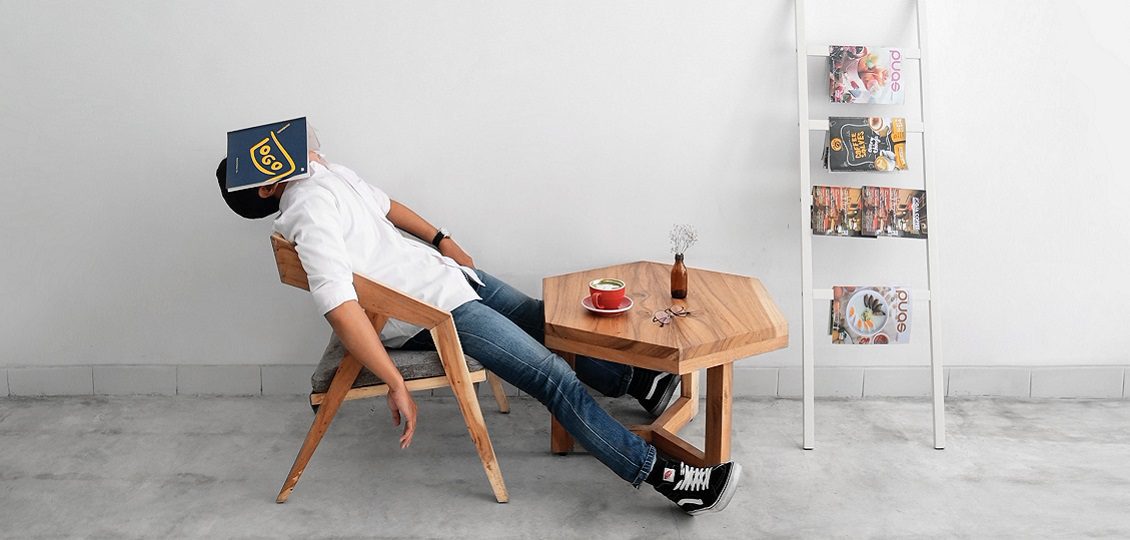By The Wellness Crew
Sleep deprivation is a major threat to workplace wellbeing. The notion ‘you snooze you lose’ goes totally out the window when it comes to employee health and wellbeing. Indeed the opposite is true. Sleep experts have been shouting the message “if you don’t snooze you lose” for years, and corporate wellness programmes are waking up to the fact.
In this article, we’ll examine why sleep awareness and sleep coaching initiatives are a valuable addition to your employee wellness programme, and look at some of the ways you can help your employees get the quality sleep they deserve.
The Science of Sleep
The Wellness Crew Sleep Coach, Aisling Killoran tells us that we need to Sleep Well to Keep Well. Sleep is when our bodies heal and reboot for the next day. It’s like when the cleaners come in to fix everything after a party and restore proper order!
During sleep our bodies flush out toxins, hormones are recalibrated and our brains process and consolidate memories. Sleeping is the human equivalent of recharging your phone battery. If you don’t fully charge the battery of your phone, what happens? It either doesn’t work the next day or runs out of power too soon.So it goes when we don’t get enough sleep.
According to the World Health Organisation the average adult needs about 8 hours and 36 mins sleep to maintain good health. And it’s crucial that this takes place consistently. If not, we run the risk of sleep deprivation, which has both short term and long term health implications.
Sleep Deprivation in Ireland
Speaking at a lecture in the Royal College of Physicians in Ireland, Dr. Joe Harbison warned that, “very few people get enough sleep anymore and sleeping disorders should be taken seriously”. He stated that people sleep less now than ever before, leading to a condition known as “sleep debt”. When a person is in “sleep debt”, they suffer impaired sustained concentration and impaired decision making.
It’s becoming a big issue in Ireland. Irish Times journalist John Faul referred to sleep deprivation as “Ireland’s secret epidemic” in 2014. Indeed, one-third of Irish people are getting less than six hours sleep a night, according to a 2017 sleep survey, commissioned by Swedish retailer IKEA.
Corroborating this on RTE Radio One’s Today With Sean O’Rourke in March 2018, sleep expert Dr. Maura Finn said that Ireland’s sleep deprivation is now at a near crisis level.
We often subjectively think we sleep less than we actually do but it would seem that this is near crisis epidemic proportions now…. 30 to 40 % of people have less sleep than they actually need.
So what does sleep deprivation mean for employee wellbeing?
The short-term impact of sleep deprivation on employee wellbeing
Reduced cognitive abilities
Low productivity and performance
Stifles creativity
Poor health choices during the day
Low tolerance and reduced emotional wellbeing
Aside from the implications for the individual employee’s wellness and productivity, these can also impact on the overall workplace wellbeing environment for co-workers.
The long-term impact of sleep deprivation on employee wellbeing
Lack of sleep is a contributing and/or aggravating factor to many health problems including:
Cancer
Low sperm count
Alzheimer’s disease
High blood pressure
Risk of stroke
Heart disease
Diabetes
Depression
Weight gain
The fact is that lack of sleep reduces lifespan.
What does sleep deprivation mean for employers?
Corporate wellness programmes are aware that employee wellbeing is directly related to productivity. Promoting workplace wellbeing results in healthier, happier workers who are more productive and effective at their job.
Supporting employee health and wellness also has a positive impact on the long-term health of employees which benefits both the employer and employee.
Researchers at Harvard Medical School conducted a study showing that insomnia costs the average worker 11 days per year in lost productivity. That’s the equivalent of about €2000 per person all down to a lack of sleep.
With evidence to show that sleep deprivation is on the increase in Ireland, it’s understandable then that Irish employers are concerned and looking for ways to support their employees’ sleep health.
What can employers do to help?
1. Provide Sleep Awareness Seminars
Educating employees about sleep health and sleep hygiene is the most important thing you can do as an employer to help reduce the impact of sleep deprivation on your workforce. Engage with corporate wellness providers such as The Wellness Crew to deliver sleep health seminars to your employees.
When planning your employee sleep health programme bear in mind that sleep education is not just about statistics and healthcare. It’s also about changing attitudes. In addition to more stress and more screen time, experts say that prevailing attitudes about sleep are a big part of the sleep deprivation problem. “We treat sleep as a luxury, but it’s a necessity,” says Dr. James Maas, international sleep consultant and author of the book Power Sleep and CEO of Sleep for Success.
Founder of The Huffington Post and Sleep evangelist Arianna Huffington drives this message home in this 2010 Ted Talks presentation below. Her aptly titled book The Sleep Revolution encourages us to make sleep the big change in our lives for better health. Indeed this is the message you want to get across to your employees through your sleep wellness programme.
2. Employee Naptime
‘Asleep on the job’ may not be such a bad thing after all. Catching a few ZZZs during the day is a great way to reboot the brain and boost productivity. If your workspace allows it, think about providing a dark, quiet room with daybeds to facilitate napping.
There are some rules to this however. Research from a 1995 NASA study found that taking a 26-minute nap improved performance by 34% and alertness by 54%! And a quick nap will enhance and improve
✓ Memory
✓ Learning
✓ Regulate emotions
✓ Spark creativity
26 minutes is the optimum time needed to avoid disrupting our routine sleep time cycle, so it should not be exceeded!
3. Fight the Blue Lights
Blue light contamination is known to delay sleep. It’s becoming a bigger and bigger problem as employees spend more time on screens, including at home at night, and moreover, on mobile phones in bed. Here are a few ways you could help to reduce this impact:
- Turn off all work related notifications overnight.
- Provide night-mode filters (or pop-up reminders to turn them on) on company hardware and software.
- Encourage your employees to read real books, rather than screens, before bed by installing a good old-fashioned paperback library, or by setting up a book swap in the office.
4. A Holistic Corporate Wellness Programme
A holistic corporate wellness programme that supports overall employee health and wellbeing will combine to aid sleep. Good nutrition and hydration, and getting at least 30 minutes exercise per day will improve sleep health.
Stress is another major factor. In fact, the most common cause of sleeplessness is STRESS! It’s a vicious cycle; if we don’t get enough sleep you become stressed and when we’re stressed it will impact the quality of our sleep. Stress drains our energy along with not having enough time in the day to complete tasks etc., which leads to impatience, and not feeling in control which, is a major contributing factor to burnout!
5. Share Information on Sleep Wellness with your Employees
There is tons of great information out there to help your employees sleep well to be well.
For example, The Wellness Crew Sleep Expert, Aisling Killoran has put together a great guide to share with employees – Why you need to Sleep Well to Keep Well.
This is followed up with How to Eat Well to Sleep Well to Keep Well and a quick checklist of sleep health tips in 17 Sleep Health Tips to Guarantee Your ZZZs.
There are organisations dedicated to the upkeep of our sleep, such as Tuck.com, which provides lots of information on how sleep works, as well as on specific sleep disorders.
Thank You!
Have you got any other suggestions for promoting sleep health in the workplace? We’d love to hear them so please feel free to share in the comment box below.









































